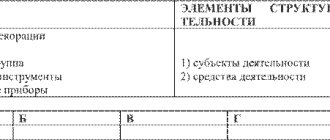What are moral standards?
Moral norms are a set of rules of behavior that are established within a particular society depending on people’s ideas about good and evil, justice and injustice. The preservation of moral standards is ensured through public approval and the internal conviction of each member of society.
All moral norms are formed from the real principles, ideals, and concepts of good and evil that people have. Thus, they all go through some kind of “social sieve” through which all norms of behavior are sifted and truly correct ones remain.
Thanks to the presence of moral norms, human behavior is regulated in various sectors and spheres of public life. First of all, we can highlight everyday life, work, family and personal relationships, intergroup and international. However, any type of interaction is determined by a specific set of moral standards. It is worth noting that moral standards differ markedly from the specific requirements of each industry in their socially all-encompassing nature, since they are mandatory for all people. They fix special requirements and constitute the basis and norm of behavior of society , determine the culture of interpersonal relations.
Any moral norm must be justified from the point of view of the value base of society, as well as its ideals, since moral norms act as a subordinate instrument of these ideals.
Control over compliance with moral standards is formed under the influence of public opinion and authorities, which cultivates in the minds of each person a position in matters of personal ideas about worthy and unworthy, moral and immoral.
Who sets moral standards?
The creation of laws and control of their implementation lies on the shoulders of the state, but morality and ethics do not have such powerful support. People develop them independently; each new interaction leads to the need to establish a framework for it. Reproduction occurs under the pressure of tradition, public opinion and personal ideas about the world. A person still has the chance to reject any restriction that he considers unacceptable.
Examples of moral standards
Over the entire history of humankind, a huge number of different moral norms have been formed, most of them are enshrined in all modern religions and teachings. Consider the list of the most important moral norms:
- Prudence. A person must be able to be guided by his own reason, and not by sudden gusts of emotion.
- Abstinence. This basis affects not only the sphere of personal relationships, but also the culture of food, entertainment, as well as the whole range of pleasures. Since ancient times, people have come to the conclusion that material wealth is a hindrance to spiritual values. Lent is one of the manifestations of this particular moral norm.
- Justice. This principle can be characterized by the proverb “Treat others the way you would like to be treated.” It is necessary to show respect towards other people.
- Politeness. Also grows out of the need to respect other people. Politeness is the basis of diplomacy.
- Hard work. At any stage of the development of humanity, in any society, work has always been encouraged.
- Humility. Humility means the ability to pause and stop in time. A person must be able to stop his impulses in a timely manner.
Mercy as a basic principle of morality
Mercy is understood as a person’s readiness to help people in need, to sympathize with them, perceiving their suffering as his own and wanting to alleviate their suffering. Many religions pay close attention to this moral principle, especially Buddhism and Christianity. In order for a person to be merciful, it is necessary that he does not divide people into “us” and “strangers”, so that he sees “his own” in everyone.
Currently, great emphasis is placed on the fact that a person should actively help those who need mercy, and it is important that he not only provides practical assistance, but is also ready to support morally.
How do moral standards work?
The content of a person’s behavior is determined by his moral principles, since they contain some basic algorithms of behavior in a specific situation. The set of these principles is determined by the characteristics of a particular society. They are aimed at regulating various sectors of human life, as well as his actions. At the same time, all moral norms are constantly supported by public authority, discipline and opinion, and this is also reinforced by the conviction of every person in society about the need to adhere to proper behavior in specific conditions.
It is worth noting one more feature of moral norms. They are not simply a consequence of the existing social order, but act as an ideological justification for a person’s specific ideas about proper or inappropriate behavior , both in general and in a specific life situation. This is one of the key differences between moral norms and simple customs and habits, which include celebrating a birthday, wedding, or New Year.
What role does morality play in the life of society and the individual?
People evaluate their actions and the actions of others from a moral point of view. This applies to economics, politics and, of course, the clergy. They select moral implications to justify certain decisions made in each of these areas.
It is necessary to adhere to the norms and rules of behavior, to serve the common good of people. There is an objective need for collective conduct of social life. Since people need each other, it is moral norms that ensure their harmonious coexistence. After all, a person cannot exist alone, and his desire to create an honest, kind and truthful world both around himself and in his own soul is quite understandable.
Consequences of violating moral standards
First of all, it should be noted the voluntary nature of compliance with moral standards. However, violation of such principles leads to the imposition of certain sanctions, manifested in a negative assessment and condemnation of the behavior of a particular person. This nature of sanctions demonstrates moral condemnation and a ban on repeating such behavior in the future. Moreover, such moral sanctions can be addressed both to a specific person and to certain social groups. Moral sanctions act as another pillar that supports and reinforces the moral requirements of social norms.
It is worth noting that some moral norms, or rather their violation, may imply much more stringent sanctions, which are determined by the norms of formal requirements existing in society. For example, if a serviceman lied to his commander, then such behavior will lead to serious consequences, which will be determined by the severity of the consequences resulting from the deception.
Moral standards can be expressed in positive and negative forms. An example of a positive one is such laws as “be honest”, “respect your elders”, “help your neighbor”. Negative manifestations imply the prohibitive nature of norms, for example, “thou shalt not steal.”
Morality in culture
Morality, norms of human behavior and other values are the embodiment of morality, since they determined the characteristics of human behavior and his consciousness in various spheres of life. For example, in the family, at work, in interpersonal relationships, and so on.
As for moral standards, this is a set of rules that determine human behavior according to principles. Failure to comply with them causes harm not only to human society.
These norms are formulated in the form of a specific set:
- give way to pregnant and elderly people;
- don't be late;
- say hello and goodbye;
- wear certain clothes;
- protect the helpless;
- help the weak and so on.
How are moral standards formed?
Here, first of all, you should realize that such categories as “good” and “evil”, “bad” and “good” are very conditional and relative. Each society may have its own value judgments on this matter. Since morality is also formed on the basis of these conditional categories, it also has a relatively conditional nature, which will be inherent in a specific social group. Also, the formation of moral standards is largely influenced by centuries-old traditions and customs , which can vary significantly depending on the society.
Currently, scientists are showing great interest in the processes of formation of morality in various ethnic groups. Research of this nature is aimed at studying social evolution and is based on the fact that behavioral norms are formed in such a way as to ensure the survival of a particular ethnic group , as well as to guarantee the continuation of the race. In this case, each person will be engaged in observing the norms of universal morality, since he will feel responsible to society.
Morality and religion: what do they have in common?
When the institution of religion was strong, it also played an important role in the formation of moral principles. Then they were presented under the guise of a higher will sent down to earth. Those who did not fulfill God's command committed sin and were not only condemned, but were also considered doomed to eternal torment in hell.
Religion presents morality in the form of commandments and parables. All believers must fulfill them if they claim purity of soul and life in heaven after death. As a rule, the commandments are similar in different religious concepts. Murder, theft, and lies are condemned. Adulterers are considered sinners.
Functions of moral standards
Moral standards perform several important functions in society:
- Worldview. Based on the morality of society, value orientations and categories are formed: norms, assessments and prohibitions. All individuals in society are engaged in fulfilling these guidelines.
- Cognitive. Each person is able to learn better about the cultural characteristics of his own society.
- Regulatory . Morality acts as a means of regulating people's daily lives. At the same time, it imposes some sanctions and also supports rules of behavior.
- Estimated. The humanistic approach becomes the basis for considering all surrounding phenomena and processes. This approach allows us to distinguish between such conditional categories as “good” and “evil.”
- Educational. Ensures the transfer of specific values from generation to generation.
- Motivational. The behavior of each person is determined by a wide number of factors, one of which is motivation, which pushes a person to action or inaction.
- Controlling. The individual must exercise independent control over himself, based on the condemnation of other members of society.
- Coordination. Describes the principles of interaction between people in various circumstances.
- Integrating. It lies in the unity of society, as well as its integrity in relation to the inner world of a particular person.
Purpose of morality
Morality acts as a regulator of a person’s actions, which subsequently determine his principles, personal views and beliefs. People do not need legal documents to adopt moral principles; such a decision is made voluntarily and independently.
The evaluative function of morality consists in the qualitative perception of one’s own and others’ actions, determining the meaning of actions. A person uses the acquired humanistic reserve to weigh on the scales the moral values of his steps and the deeds of other individuals. A more precise definition is given if a high level of compliance with moral standards is achieved.
The educational significance is that constant adherence to moral principles leads to the formation of social ideals in a person. An optimal combination of public and personal interests is developing. The individual achieves his own goals in a way that does not harm the surrounding space and people.
Other observers exercise unspoken control over a person's behavior, condemn him for bad actions and express positive emotions when he acts benevolently. Society monitors the living conditions of people. Morality sometimes depends on circumstances, so the environment must be worthy of a person. Morality plays an integrating role for the individual; awareness of the correctness of one’s own actions leads to internal harmonization.
How do moral norms differ from legal norms?
It is worth noting that law and morality in modern society are built on similar principles, since they guard universal human values and ideals. However, it is always worth remembering that law and morality act as different normative regulators. Each of these categories has its own characteristics and area of influence. Moreover, these categories have certain points of contact. However, there are certain differences. Let's look at them:
- Moral standards are, by their nature, rather vague and uncertain. Legal norms do not allow for different interpretations and are always definite and clear;
- The rules of law regulate the most important social relations, which are key from the point of view of human life support. Moral standards regulate all personal and social principles of behavior;
- Form of fastening. Legal norms are enshrined in laws, moral norms are deposited in the consciousness of society.
- The sanctions of legal norms are ensured by state coercion, and moral norms are protected by the possibility of public condemnation.
What forms a healthy personality?
Moral and ethical norms and other values constitute the image of not only ancient, but also modern man, who has successfully developed in the sense of standard piety. A child, and even adults, should strive for this portrait. So we can see the pursuit of this goal, based on the analysis of the individual’s actions.
In Christianity, the image of the Savior – Jesus Christ – is used as a standard. It was he who began to instill justice in human souls and hearts, as well as moral standards of behavior in society. He is God.
Ethics and other rules play the role of personal and life guidelines for different people. A healthy person sets his own goals. Thus, positive morality is manifested, which helps to control immoral behavior, as well as the thoughts and feelings of a person.
As you know, morality performs its functions in society in the form of 3 interconnected elements. Each of them represents one of the embodiments of morality. Let's introduce them:
- moral activity;
- moral consciousness;
- moral relations.
Swearing (Alexander Gorlovsky about taboo words)
In all societies there were forbidden (taboo) words.
- In religious ones it was impossible to mention the devil, the devil,
- in secular ones, you cannot swear with words recognized as swearing. As a rule, these words had to do with sex, genitals, feces.
There is a certain state of a person when he needs to get rid of or reduce it - this is a state of stress. Which can have a level from zero to 100%.
In this state (at the maximum level), a person is ready to destroy - with deeds, words, since this is an outlet for the energy that overwhelms him.
Mat is one of these methods [violating moral standards].
But not all people will swear even under 100% stress. The use of taboo words depends on the culture of a person’s (self) education. If he has a program of 100% ban on swearing, he will not swear in any situations and swearing will hurt his ears (and eyes) in any case.
V. Vysotsky had a stress level of 100% from the age of 27. Taboo on swearing - 40%. That's why he swore.
There are people who have zero taboo on swearing. These people just speak obscenities (they don’t swear).
I have a taboo of 80%. That's why sometimes I admit such things. Rarely as my stress is zero. Before the block was removed it was 100% (like all Russian people). Then he gradually fell.
What determines the level of stress?
From - that's right, from Karma. From her script. As usual, a serious topic was reduced to quackery.
Taboo on swearing:
- Gorbachev - 100%
- Yeltsin - 100%
- Putin - 40%
- Sechin - 0%
I often (lately) have stressful situations - that’s when I can “speak out” very strongly. Then I myself am surprised at this and feel a little ashamed that I couldn’t restrain myself. I'm sorry.
With some people, I can’t stand it at all when they swear—it hurts the ear and is unpleasant—even disgusting. But there are people who swear, but I don’t hear swearing from them. They “fit in” when we communicate and I perceive it quite normally - it doesn’t hurt my ear at all, and doesn’t cause negative emotions at all.
You have an 80% taboo on swearing.
I’d rather swear... There was definitely a taboo on swearing for many years since childhood (I chose my grandmother as my standard, as opposed to my swearing father).
From the moment I began to raise the vibrations, the taboo began to weaken, (perhaps) - the swearing sounding next to me definitely stopped annoying me - since a person needs it for something, then let him swear for his own good, the desire to re-educate him and the reciprocal anger subsided...
I had a 100% taboo on swearing until I was 50 years old. Before removing the block, and then dropped to 80%. It turns out it's a little more fun to live with a curse word.










